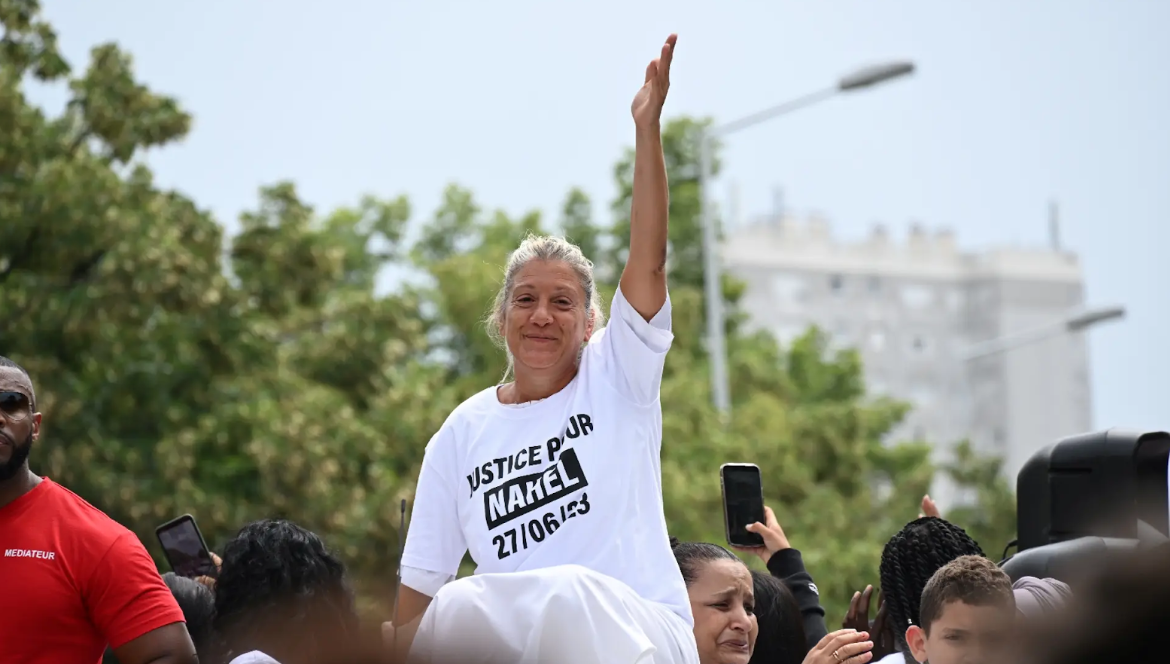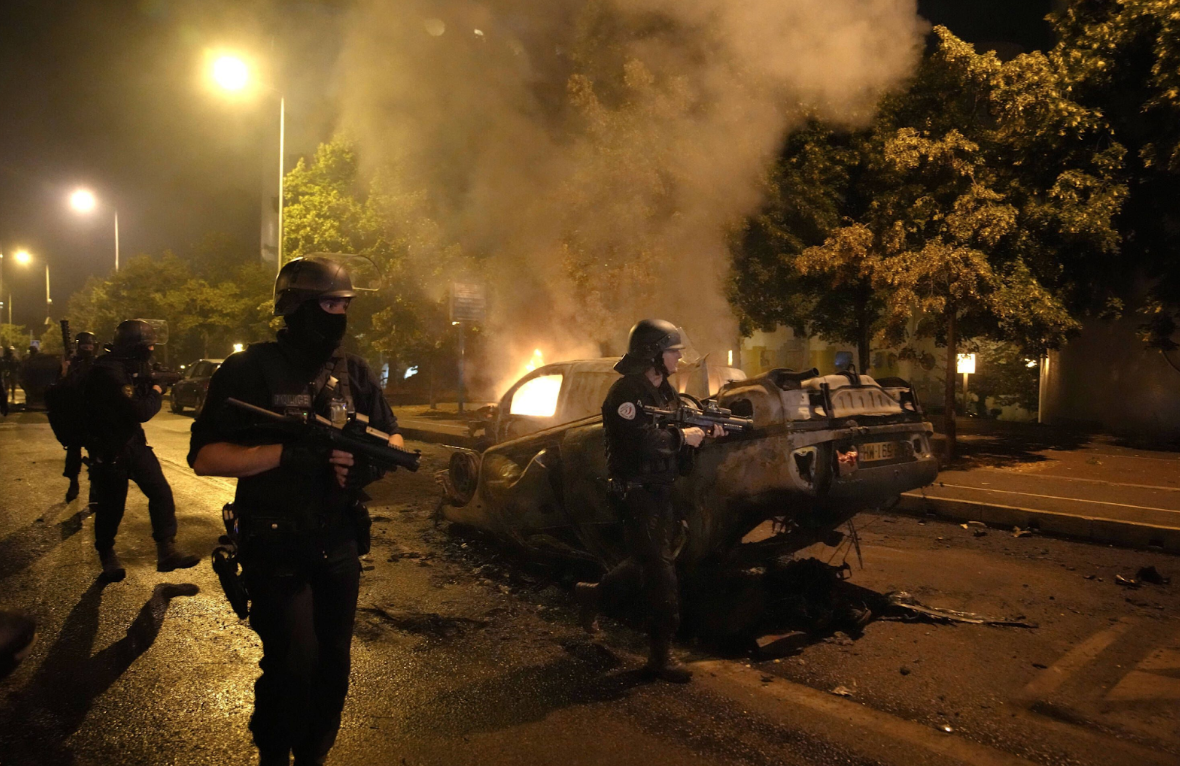On 27 June 2023, Nahel, a 17-year-old French teenager of Algerian and Moroccan descent, died during a police stop in Nanterre, a suburb west of Paris. The police initially claimed that Nahel had resisted arrest and threatened to run over a police officer with the car he was driving, which justified the use of a firearm. However, shortly after the accident, two videos of the scene posted on social media showed that the police officers were on the side of the car and not in front, so they were not in any danger. In one of the videos, the police officers clearly threaten the teenager, shouting “you’re going to get shot in the head“.
The discrepancy between the police’s version of events and the evidence revealed by these videos triggered a wave of emotion throughout France. Over the course of a week, violent riots broke out overnight, countless shops were looted, rioters fired fireworks at the police, and cars, schools and other public buildings were burned down. In response to the unrest, the French government mobilised an extra 40,000 police officers, including specialist units. Many cities introduced curfews and suspended public transport earlier than usual. After eight nights, 723 police officers were injured, 1092 buildings were damaged and 5954 cars were burnt. 3,651 people were arrested and 380 of these received prison sentences.
‘You’re going to get shot in the head.’
Far from being confined to the most difficult areas of France, these riots took place in many town centres and neighbourhoods, including in normally peaceful medium-sized towns. A new level of violence was reached, with elected representatives being directly targeted by the rioters. In L’Haÿ-les-Roses, near Paris, a car was thrown at a representative’s house and then set on fire, forcing his wife and two young children to flee.
These events highlight the widening gap between a section of the population and the institutions that are supposed to protect and represent them. They also revealed the widespread contempt and misconceptions about the situation in poor suburbs. Some police unions explicitly defended the policeman who shot Nahel, saying: “Well done to the colleagues who opened fire on a 17-year-old criminal (…) the only people responsible for this thug’s death are his parents, who are incapable of educating their son“, or declaring that they would “rather see a dead scum than a dead cop“. An online fundraising campaign launched by a far-right politician in support of the policeman raised €1.6 million in just a few days.

While the French government condemned the action of the policeman, with President Macron describing Nahel’s death as “inexplicable and inexcusable“, the majority of elected representatives criticised the lack of official reaction. The left stressed that the only response to the riot was to restore order, without any in-depth reflection on life in these neighbourhoods or the internal workings of the French police, while the right denounced the left’s alleged sympathy for the rioters, as well as its excessive criticism of the police force.
These tragic events reignite the debate on integration and equality, as well as endemic racism within the French police force, a problem that has been highlighted by the UN High Commissioner for Human Rights. The lethal use of firearms by police has increased fivefold since 2017 following a change in legislation, while black and Arab people are stopped far more frequently by police in France.
Théophile Bernard is a third year Bi-diplôme in Politics and International Relations student who will return to Sciences Po Lille in September to complete his degree.

